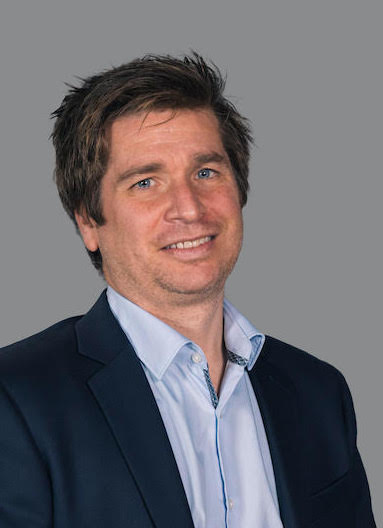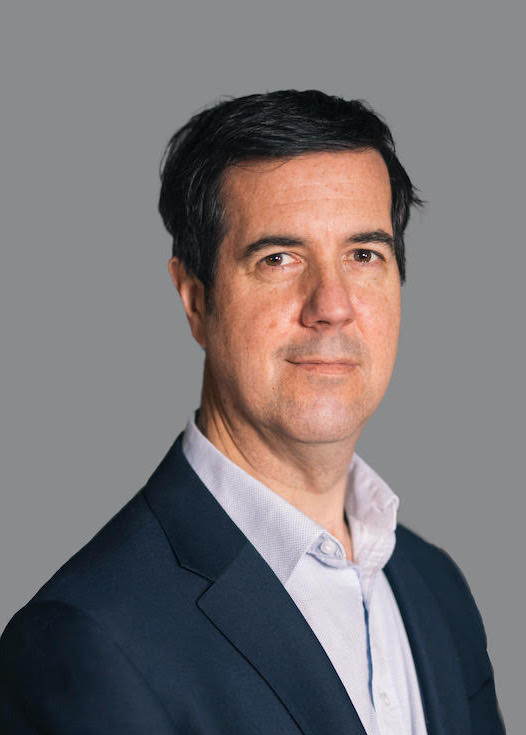Artemis was established in 1997 by a team that had worked together at Ivory & Sime,
Edinburgh. Artemis is an independent firm dedicated to asset management with AUM of £27
($37.45) billion. The firm has offices in Edinburgh and London; and sales offices in Munich
and Zurich.
In April 2021, Artemis launched the Positive Future Fund to invest in firms with the capacity
to effect positive change. The fund is managed by Craig Bonthron, Neil Goddin, Jonathan Parsons and Ryan Smith, who joined the business from Aegon Asset Management (formerly Kames Capital) in November 2020, where they managed the Aegon Global Sustainable Equity fund. The fund’s benchmark is the MSCI AC World and its active share is >99%.
What’s it like being Edinburgh-based, rather than London-based?
Edinburgh remains a vibrant place to be in the investment management business. In terms of
corporate access, we get better access in Edinburgh than we would if we were in London.
We compete for access with fewer institutions so get access to top management regularly.
Obviously, since Covid we do most things on-line so it in that sense it doesn’t matter where
we are located.
How do you work in conjunction with other Artemis FMs in London and Edinburgh?
We share meetings with various other teams – the US team and the UK team in particular.
We have a centralized research system. Also, we have regular fortnightly meetings to update
the others on our latest thoughts so there’s continual cross-fertilization of ideas. Our team has greatly strengthened the ESG capability and brought a better understanding of ESG across all
the different Artemis franchises. But overall, our mandates are individual as franchises. And
our focus is positive impact.
Four of you joined Artemis in 2020, do you split sectors/geographies?
No – our specialist area is growth and impact stocks. So global best ideas. There are 144 sub
sectors and we have stocks on our short list in 56 of them.
The Artemis Positive Future Fund was launched in April 2021 – target AUM?
There is demonstrable demand for our very specific skill set which focuses on
transformational disruption and growth; this is reflected in the flows we have seen in the very
early days of our fund’s life. Clients like the multi-cap bent of this fund as we are able to go
down the market cap scale more than most competitors. $4 – 5 billion is our average market
cap. Artemis never sets formal targets for a fund’s size: we concentrate solely on doing the
best job we can for our clients.
Of AUM, all in equities, all long only?
Yes and yes.
Current geographic split of AUM?
Americas 55%
Pan Eur (inc UK) 20%
APAC 20%
MEA 5%
I note that Shopify is a holding – is that not too large cap?
There’s no rule saying we can’t invest in large cap names – but often the most interesting and
innovative companies are smaller. In the retail space, while Shopify is less dominant than
Walmart and Amazon, it enables small businesses to compete with them. It is “a shop in a
box” – you outsource everything to them, and it lets you get on with running your business.
It’s a fantastic service. It is redressing the balance. To use an expression from Star Wars – it
is “arming the rebels”.
You believe the best long term growth opportunities come through investing in innovative companies that are addressing significant sustainability challenges such as global warming, pollution, ecological damage, inequality, obesity, malnutrition, corruption. Can you discuss one or two holdings?
Amplifon – engaged in the distribution of hearing solutions; most often seen in the form of
their high street shops. Founded in 1947 by an Englishman in Milan to help people who had
lost their hearing during the war. It is still 40% owned by the family – something we love as
it brings very long-term focus. The reason we own it is that it is a massive market. Only
around 40% of people in the developed world who need a hearing aid have one; and that
number is under 5% in emerging markets. Amplifon is the biggest player but still has only
around 11% market share. Until recently, they sold other companies’ products – but they
made the move to private label in recent years. Now their own products are around half the
price and the product is at least as good. Customer uptake has been huge, given price
comparisons, and margins are higher for Amplifon. So, it’s a better outcome for the patient
and a better outcome for Amplifon. This is the type of dream scenario we look for; cheaper
product and with a better outcome for both patient and company. It is a new, innovative
product that’s having a positive impact.
Everbridge – a software company that provides a public safety service essentially. Post
September 11, they realized they could use their technology to notify people in the event of
an emergency and allow them to move to safety (avoiding needless loss of life). They have
contracts with all the telephone companies and if there’s a flood or other disaster you will get
a message on your smartphone. This service has been rolled out in many parts of the US
which is a big market. Just last month Everbridge announced the successful deployment of
National Public Warning system for the UK. This will allow the government to reach people
quickly during national emergencies such as public health crisis, terror attacks, industrial
incidents and natural disasters like flooding.
Beyond Meat – market leader in plant-based protein and has been in business since 2009.
The founder was looking at ways to help the environment and is passionate about what he
does and thinks long term. We think they are the best-in-class product. While there is
competition, we think that’s a good thing. Just means there’s massive market share still to go
for. Beyond Meat has about 30% share today – we expect that figure to come down – but
the TAM is so large it will still have growth. Also, they have signed partnerships with KFC
and McDonalds and if these take-off, it could be hugely interesting.
You don’t invest in alcohol, tobacco, weapons, nuclear power, gambling, animal testing, adult entertainment, genetic modification, fossil fuels?
Correct.
Your initial investible universe is 5,000 stocks worldwide, but you don’t invest in the above sectors, nor “pre-revenue” or private companies so this brings it down to 1,000 stocks for further research and that is whittled down to 300 companies – how?
We focus on companies that are growing faster than the market and there are only about
1,000 companies that grow faster than the market. We then look for companies that are
having a positive impact. At any given time we have around 300 stocks on our watch list; this
lists changes regularly but is our key focus when looking for new ideas.
Sectors in which you are invested include: fully autonomous driving; hydrogen vehicles; 5G; battery energy storage; machine learning; digital garment printing; medical wearables; fintech payments; enterprise SaaS; electric vehicles. Do you own Tesla?
We own it and have done for a number of years. It used to be a lot bigger position in our
previous fund. It’s the largest company we own in terms of market capitalisation. We are
still at such an early stage of the electric vehicle journey. EVs are going to make up a huge
number of cars on the road over the next 10 – 15 years. Sometimes it is best to own the
market leader – they are ahead of everyone, their cars are better; they go further. Model 3
long range is one of the most cost-effective EVs you can buy. We also own a European stock
called Alfen which develops and produces charging units and energy storage; so it’s not our
only play in the EV space.
Average number of positions held?
35-40; we presently own 38 stocks.
Largest holdings?
Everbridge at around 4.5%. If a stock gets to 8 or 9% it gets there because of
outperformance.
Average position?
Our initial position tends to be 2 – 3% – we don’t dip our toes in the water. We like to buy
big enough early. Our average position is between 2.5% to 3%; with the smallest being 1%.
Investment time horizon?
The minimum – five years. But 10 – 20 years mostly. We don’t worry about the next
quarter. Time is the most important asset fund managers have on their side. We target
stocks/themes that are going to be materially bigger in the future than they are today.
Do you vote your proxy?
Yes – we vote. We think voting and engagement with management is an integral part of fund
management. We voted actively in our previous fund and intend to continue on this path
again.
You like to meet companies before investing, preferred method (eg conference, 1/1, group)?
One-on-one is ideal, if available. Minimum is a conversation with IR but we expect to follow
up with the C-suite. Group meetings are fine but probably we’d want to follow up. We are
not going to get C-suite at Shopify. But one of great things about our SMID cap bias is we
get to meet many C-suites of the smaller companies.
How do you work with SS analysts?
A growing number of banks have an ESG desk now. However, the most important
investment case for us is the positive impact and this is not covered by ESG analysts or
screens. Positive impact is much more than ESG.
Given the pandemic, will corporate access be virtual, in person or a combination of both in the future?
Combination of both. We’ve proven it can work.


